
Banks and a Just Energy Transition
For any feedback or questions on this page please contact us at
climate@banktrack.org

For any feedback or questions on this page please contact us at
climate@banktrack.org
Moving beyond fossil fuels
In 2018, the UN’s Intergovernmental Panel on Climate Change (IPCC) released an alarming report stating the scientific consensus that the world has until 2030 to cut 50% of greenhouse gas emissions (from 2010 levels) and should reach ‘net zero’ by 2050, for a 50% (!) chance to limit global warming below the 1.5ºC of the Paris Climate Agreement.
To get there, while ensuring access to energy for all, the world must not only rapidly phase out all fossil fuels, but also massively increase the investment in renewable energy.
The International Energy Agency (IEA)’s Net Zero Emissions by 2050 scenario (2021, updated 2023), states that:
-
Tripling global installed renewables capacity to 11 000 gigawatts by 2030 provides the largest emissions reductions to 2030
-
Increasing clean energy investment in developing countries is vital
-
The net zero emissions transition must be secure and affordable.
The good news is that there is a global consensus on tripling renewables, and renewables capacity is indeed growing. The bad news is that it is not yet enough. Or as the International Renewable Energy Agency (IRENA) puts it, in its latest World Energy Transitions Outlook, “the energy transition is off-track” and “every year, the gap between what is achieved and what is required continues to grow.”
At BankTrack we believe that to tackle the root causes that brought us all to the current climate crisis we need not just new energy but a new vision for the future of global energy provision that leaves no one behind. Our vision is Energy Democracy, Just Transition is how we get there and Real Solutions are the technologies that deliver on a just transition towards energy democracy. Conversely, False Solutions are technologies that are not aligned with a just transition towards energy democracy.
Real solutions have the highest potential for mass public support and are easier to adapt to different scales, by benefiting the vast majority of those most affected by, and least responsible for the climate crisis, and making the global minority of those most responsible for the climate crisis pay accordingly.
Energy Democracy
By Energy Democracy, BankTrack means a fair and just energy system that:
-
Delivers a safe, stable climate and nature for present and future generations
-
Respects planetary boundaries and Human Rights
-
Makes energy a universal common good, by giving everyone (between and within communities) equitable, affordable, secure and sufficient access to fossil-free energy, thus eradicating energy poverty
-
Provides decent work and secure, unionised, well-paid jobs providing real climate solutions
-
Centres good living (Buen Vivir) and shared prosperity, instead of profiteering
-
Is democratically owned, participated in, and governed (e.g. through shared ownership models like energy cooperatives and communities)
-
Is sensitive to local and regional differences
-
Benefits local economies, with production and ownership as localized as possible
Just Transition
By Just Transition, BankTrack means an energy transition that immediately and drastically reduces greenhouse gas emissions, in line with energy democracy principles. In practice, it means that this transition needs to:
-
Benefit those most affected by, and least responsible for, the climate crisis (with a special focus first on frontline communities and second on non-executive fossil fuel industry workers), thus repairing past and current fossil-finance-inflicted suffering
-
Be paid for by those most responsible for (and usually the least affected by) the climate crisis (major fossil producers, historically high emitting countries and the polluter elite)
-
Be climate justice-oriented, acknowledging and addressing the intersections between racism, classism, capitalism, economic injustice, gender exploitation, extractivism, and environmental harm
-
Redistribute agency, power, and benefits from the few to the many
-
Mitigate the destruction of nature
-
Be achieved through inclusive community leadership and consultation and robust implementation of the principles of Free, Prior, and Informed Consent (FPIC) for Indigenous Peoples
-
Uphold worker and community rights (especially Indigenous rights) and guarantee that workers, Indigenous and community leaders will not be silenced through intimidation or violence
-
Decolonise global power relations, by relieving communities and countries from colonial and neocolonial burdens of debt, health, power or other
-
Be degrowth-oriented, limiting the polluter elite’s energy overconsumption, increasing energy efficiency and reducing energy intensity
Real vs False Solutions
Real solutions are solutions that contribute to a just transition. We consider the following to be real solutions, provided that they do deliver Energy Democracy. We recognise that, in practice, these technologies often do not respect just transition principles, and we do not support their deployment in such cases:
-
Wind energy (onshore and offshore)
-
Solar energy (photovoltaic and thermal)
-
Renewable energy grids & storage
-
Geothermal energy
-
Ocean energy
-
Hydropower lifespan extension
-
Fossil-free/Green Hydrogen, for specific sectors that can’t yet be powered by 100% wind and solar (e.g. Steel)
On the other hand, we consider the following technologies and schemes False Solutions:
-
Carbon fuels: Fossil Fuels, Biomass & Bioenergy
-
Carbon trading, credits & offsets
-
Carbon Capture, Utilisation and Storage (CCUS)
-
Fossil & Nuclear Hydrogen
-
Geoengineering
-
Hydropower expansion
-
Nuclear power
To define what constitutes each of these technologies, we follow IEA’s Glossary, where applicable.
The role of banks
Tripling global renewable energy capacity by 2030 is no easy feat, and banks are already playing a key role in getting there. According to IRENA:
-
A cumulative USD 150 trillion is required to realise the 1.5°C target by 2050, averaging over USD 5 trillion in annual terms.
-
Renewable energy investment remains concentrated in a limited number of countries and focused on only a few technologies.
-
Some 75% of global investment in renewables from 2013 to 2020 came from the private sector.
-
Public finance and policy should crowd in private capital, but greater geographical and technological diversity of investment requires targeted and scaled-up public contributions.
Banks have a crucial role to play as financiers of the just energy transition, financing real solutions rather than false solutions that fail to address the root causes of the climate crisis and might even lead to emissions reduction but at the cost of human rights violations and even more nature destruction.
What banks must do
For a renewable sector that delivers on the promise to hand break the climate crisis, we call on banks to:
- Adopt policies aligning their finance with a 6:1 ratio of renewable vs fossil investment by 2030
- Report energy finance data, disaggregated for each energy source & following a transparent methodology
- Exclude false solutions from green/clean/sustainable finance frameworks (namely: hydropower, hydrogen, solid biomass, biofuels, carbon capture, utilization and storage, and nuclear power)
- Adopt policies immediately excluding finance to false solution sectors
What BankTrack does
To ensure banks play their role in tripling renewables by 2030, BankTrack is:
-
Mapping finance flows: we are developing a tool that tracks how banks define climate solutions technologies (i.e. what each means when referring to energy as “green”, “renewable”, “sustainable” or “clean”), allowing campaigners worldwide to understand the status of banks’ renewable energy finance - including each target banks' definition of renewable energy, and how invested (or not) they are in false solutions’ proliferation
-
Strengthening bank policies: our main objective at this stage, with a focus on pushing banks to adopt a 6:1 clean-to-fossil energy ratio. We work closely with Reclaim Finance on this topic and use their Sustainable Power Policy Tracker to inform our bank policy recommendations per bank, the engagement with each bank and supporting civil society in targeting banks to fast track just transition finance
-
Targeting Dodgy Deals: to stop the proliferation of false solutions, we are currently investigating bank finance for false solutions, so that we campaign on one or more False Solutions Dodgy Deals in 2025
-
Engaging with banks: directly connecting with bank representatives to strengthen their policies and uphold their commitments, with a focus on pushing a 6:1 clean-to-fossil energy ratio and stopping false solutions finance
-
Strengthening movements: we are part of campaign coalitions including the Global Clean Energy Network (GCEN), Fossil Free Finance Campaign, Beyond Fossil Fuels, and European Responsible Investment Network (ERIN)
False Solutions Tracker expansion
The purpose of the False Solutions Tracker is to give a clear overview of energy technologies that fall under banks' individual sustainable finance commitments. The tracker lists 11 energy technologies that are usually associated with the energy transition and the decarbonisation of the economy. These technologies are defined here and classified in three categories:
-
Real solutions: Technologies that deliver on a Just Transition towards Energy Democracy. BankTrack considers these technologies as real solutions only if and when they do deliver Energy Democracy.
-
Solutions under strict conditions: Energy technologies that could be real solutions if they deliver on a Just Transition towards Energy Democracy but that could also be false solutions. This is the case of hydrogen and hydropower. On one hand, fossil-free and green hydrogen could be a real solution under certain conditions. However, fossil-based hydrogen and nuclear hydrogen are always false solutions. On the other hand, hydropower lifespan extension could also be a real solution under strict conditions while hydropower expansion is a false solution.
-
False solutions: Energy technologies that are not aligned with a just transition towards Energy Democracy, such as solid biomass, biofuels and carbon capture, utilisation and storage (CCUS).
For each one of the 11 energy technologies, the tracker indicates if it is included in bank's individual sustainable finance commitments:
For Real solutions:
- : Yes, the bank includes its finance towards this energy technology in its sustainable finance reporting.
- : Yes, the bank includes its finance towards this energy technology in its sustainable finance reporting, but under certain conditions. In this case, those conditions are mentioned in the "relevant policy document" section for each bank.
- : No, the bank does not include its finance towards this energy technology in its sustainable finance reporting.
- : It is unclear whether the bank includes or not its finance towards this energy technology in its sustainable finance reporting.
For solutions under strict conditions and for false solutions:
- : Yes, the bank includes its finance towards this energy technology in its sustainable finance reporting.
- : Yes, the bank includes its finance towards this energy technology in its sustainable finance reporting, but under certain conditions. In this case, those conditions are mentioned in the "relevant policy document" section for each bank.
- : No, the bank does not include its finance towards this energy technology in its sustainable finance reporting.
- : It is unclear whether the bank includes or not its finance towards this energy technology in its sustainable finance reporting.



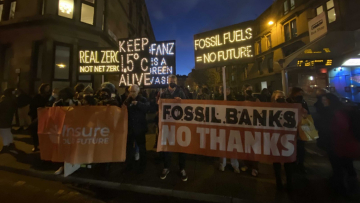











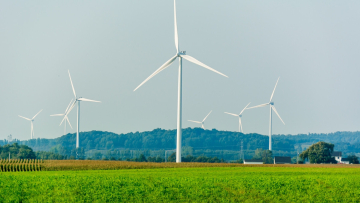
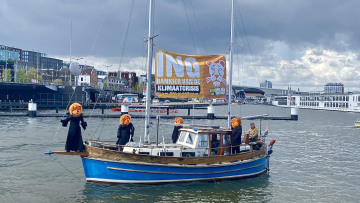
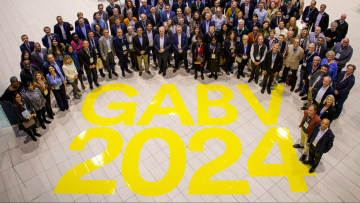
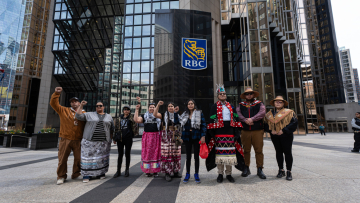
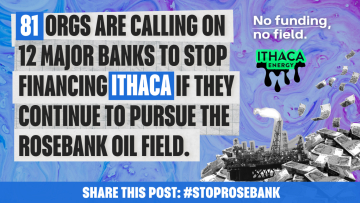
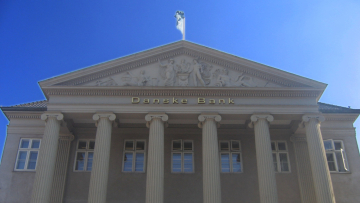
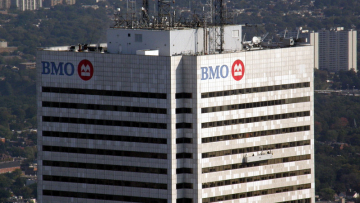


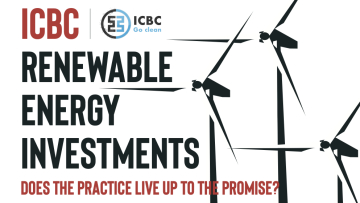


.jpg&cropratio=16:9&width=360)